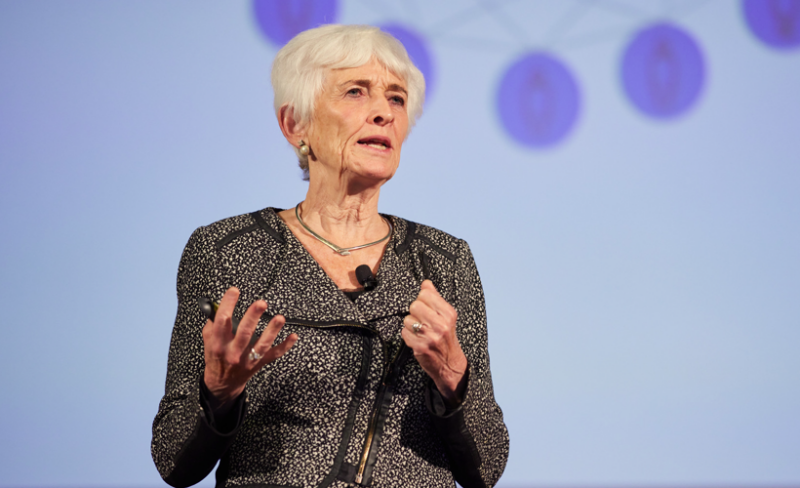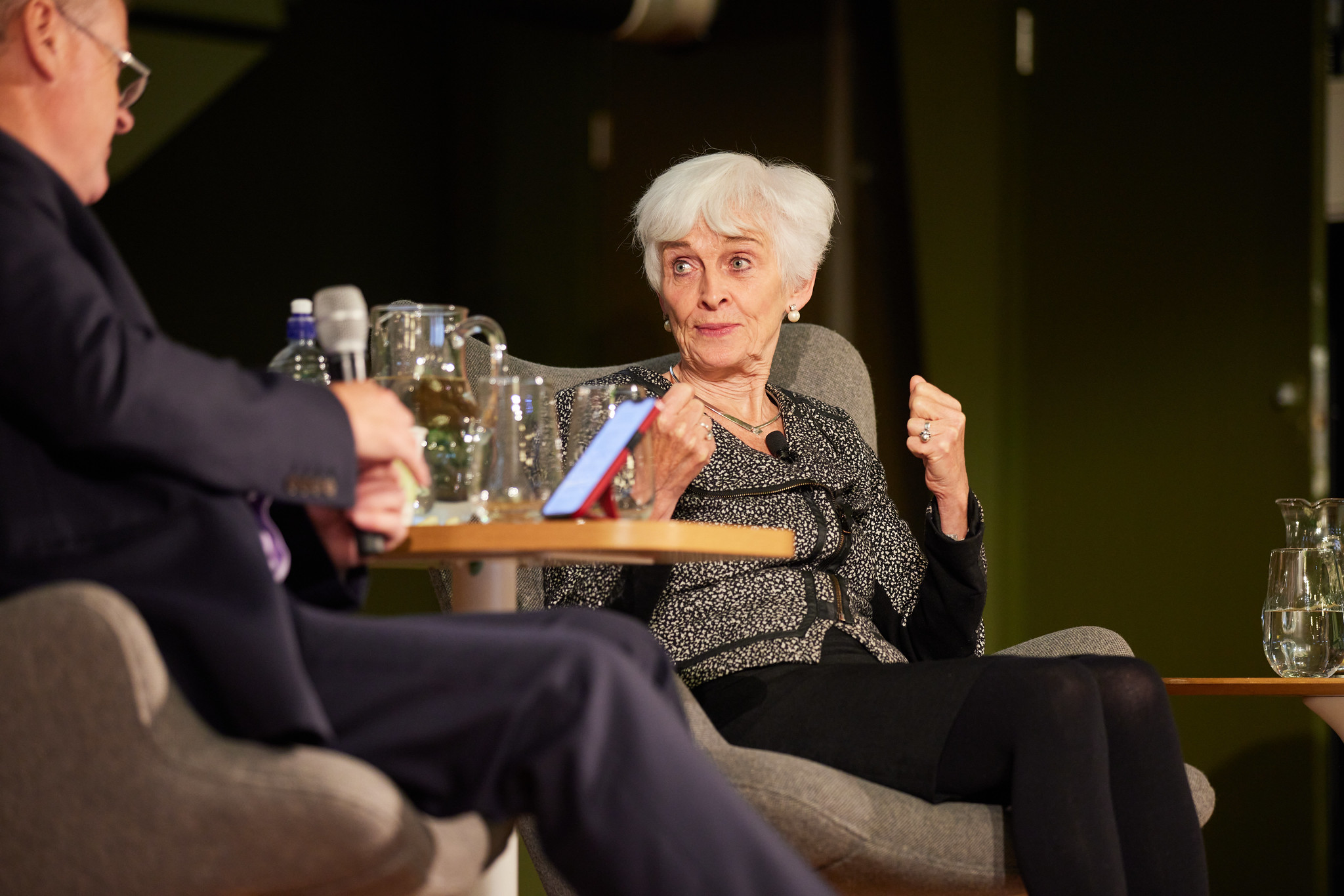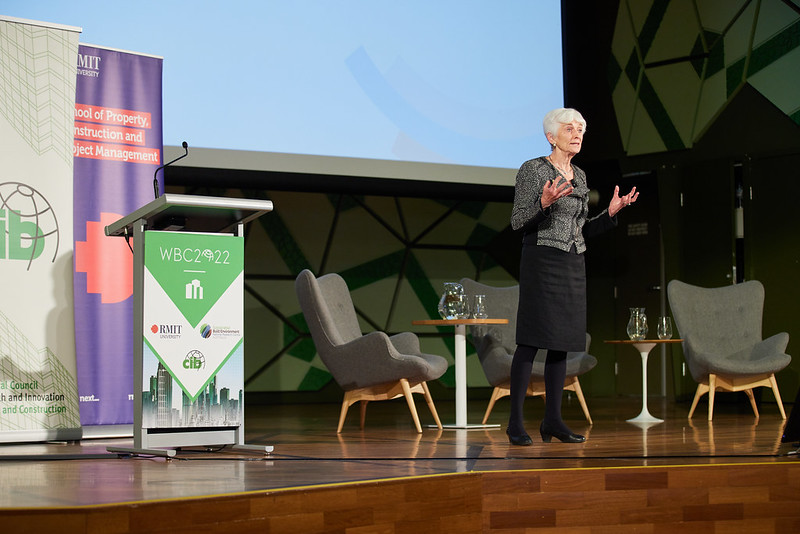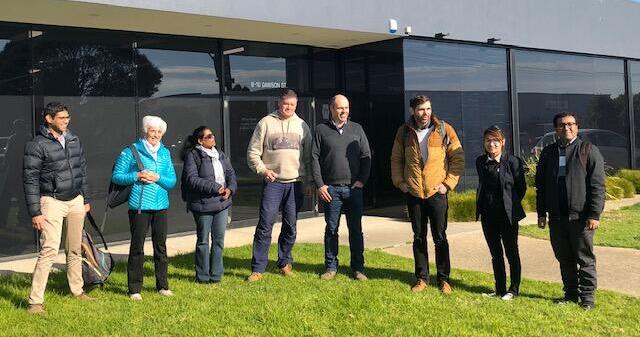Australia: Circular Economy Developments by Jacqueline Cramer
July 12, 2022
Jacqueline Cramer, Holland Circular Hotspot Chair, former Dutch Minister of Housing, Spatial Planning and Environment and author of the book “How network governance powers the circular economy”, travels these months in Australia. She is invited by the ‘Australian Circular Economy Hub’ (Planet Ark) and RMIT, a technical university in Melbourne, to help integrate circular economy there. She will visit Melbourne, Canberra, Sydney, and Brisbane to talk with local business communities, with universities and research institutes, and the government at local, state, and federal levels.
Jacqueline will share her experiences in a series of blogs. Read her first contribution below.

"Renewal starts with coalitions of well-wishers who see the urgency of the circular economy and who are jointly prepared to take a circular initiative."
Jacqueline Cramer
Circular Development: Different Interventions for Different Stages
How good to see that the Netherlands can inspire other countries, including Australia, to adopt the circular economy. The Dutch embassy is supporting me tremendously in the organization and planning of all the visits I make to I give lectures and workshops and talk in small groups to all kinds of people interested in the circular economy. Their interests vary, but the common denominator is: How can we implement circular economy? What is the role of companies, governments, knowledge institutions, and citizens? And how can promising innovations be scaled up? The two books I have written on this subject are often quoted in this context. The book How network governance powers the circular economy; Ten guiding principles for building a circular economy, based on Dutch experiences, is particularly interesting because of the ten guiding principles and the many examples described in the book. They are curious about how to organize the transition process towards the circular economy and what exactly is the role of an independent intermediary (‘transition broker’) in this.
It is so fascinating to see how they try to translate all the lessons learned to the Australian situation. That this differs from the Dutch situation was clear to me beforehand. Because after writing the first book, I decided to write a second one last year, Building a circular future; Ten takeaways for global changemakers. In it, I compared 16 countries, including Australia, with the main question: Is network control also important in other countries to get the circular economy off the ground, and how does it relate to the role of the government (‘public control’)? This study shows that all countries consider network governance necessary, but that receptiveness differs. Countries that are not so used to cooperation between governments, businesses, and other social organizations experience this as an obstacle to the development of the circular economy.
Australia is an example of this. But I emphasize to them that there are cores of innovation to be found in every country. And my advice is: start there. Because renewal starts with coalitions of well-wishers who see the urgency of the circular economy and who are jointly prepared to take a circular initiative.
 photo: on stage during the World Building Congress in Melbourne
photo: on stage during the World Building Congress in Melbourne
Opportunities for Dutch experts to help with local ambitions
In the first week of my stay, I already came across several of these coalitions of renewal. Within RMIT, where I have been appointed as visiting professor, various researchers want to join forces and initiate change together with the business community (e.g. the construction industry). Also, during the World Building Congress held last week in Melbourne, where I gave a keynote speech, I noticed that the idea of network control was very appealing and that researchers from different parts of the world were interested in learning more about it.
During the past week, I have been working mainly with scientists from universities and research institutes. But I also traveled to Gippsland, 3 hours from Melbourne. It is a former coal mining area. The aim is to transform this area into a circular breeding ground and also to concentrate on renewable energy sources here (especially solar energy and wind at sea). In addition, they want to use an old waste disposal site for energy generation. Urban mining may make it possible to recycle even more. If a company in the Netherlands has expertise in this, please let me know. The last thing that has a clear link with the Netherlands is the problem that all the water flows into the 10-20 meter-deep coal mines, while the rest of the country is suffering from drought. Surely, organizations such as Deltares must be able to solve this technically. The initiators of all these plans are very passionate and seek cooperation with knowledge institutions, including RMIT. A wonderful example of a core of innovation that, after success, can be widely scaled up.
This week and next will be all about practice. This week in Sydney I have a well-organized meeting for the construction chain and ING itself about the importance of the circular economy and how to manage it. And then in Melbourne workshops with representatives from the construction industry, the government at the level of the state of Victoria, and local authorities. Next time I’ll be happy to share my initial findings with you. What is happening here and what opportunities does it offer for Dutch companies working or wanting to work in Australia?
To be continued.
photo: Gippsland visit

